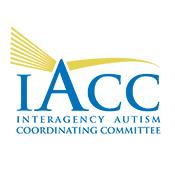HHS Seeks Nominations for IACC Public Membership

On September 30, 2019, President Trump signed the Autism Collaboration, Accountability, Research, Education and Support (CARES) Act of 2019 into law, which reauthorizes and expands the Combating Autism Act of 2006. The new law reauthorizes the Interagency Autism Coordinating Committee (IACC) to continue until September 30, 2024.
The Department of Health and Human Services (HHS) is currently seeking nominations of individuals to serve as non-federal public members on the next iteration of the committee. Nominations will be accepted between Tuesday, November 19, 2019 and Friday, February 21, 2020.
The IACC is a federal advisory committee composed of federal officials and non-federal public members, including autism self-advocates; family members; representatives of autism research, service, and advocacy organizations; community professionals; and other public stakeholders. The committee is charged with:
- Providing annual updates on its Strategic Plan for Autism Spectrum Disorder (ASD);
- Providing annual updates on its Summary of Advances in ASD Research, a document that summarizes each year's top ASD research advances;
- Providing advice and recommendations to the HHS Secretary regarding issues related to ASD;
- Providing a forum for public discussion of issues related to ASD;
- Facilitating the exchange of information on and coordination of ASD activities among the member agencies and organizations.
Advice and recommendations developed by the IACC is used to guide federal agencies in setting program and funding priorities, and in developing partnerships with private organizations. As a federal advisory committee, the IACC does not have authority or appropriations to fund research or services activities, nor to implement federal programs.
Under the Autism CARES Act of 2014, the IACC completed several important projects, such as expanding the Strategic Plan to include service and support activities, publishing analyses of U.S. autism research funding, and convening two working groups to address health outcomes and housing needs of people on the autism spectrum.
Members of the public are welcome to nominate individuals with personal and/or professional experience with ASD to serve on the Committee. Nominations of individuals with a variety of disability and support needs, individuals from all U.S. states and territories, and individuals representing diverse populations within the autism community, including all genders and gender identities, cultural, ethnic and racial groups are encouraged.
The Office of Autism Research Coordination (OARC) at the National Institutes of Health, which manages the IACC, will assist HHS in collecting public member nominations. Selections and appointments of public members will be made by the Secretary of Health and Human Services.
For more information on the IACC public member nomination process, please see the 2019 IACC Call for Nominations Announcement.
Contact: Office of Autism Research Coordination / NIH
Email: IACCPublicInquiries@mail.nih.gov
***
The IACC is a Federal advisory committee that was created by Congress in an effort to accelerate progress in ASD research and services. The IACC works to improve coordination and communication across the Federal government and work in partnership with the autism community. The Committee is composed of officials from many different Federal agencies involved in autism research and services, as well as adults on the autism spectrum, parents and family members of individuals on the autism spectrum, advocates, researchers, providers, and other public stakeholders. The documents and recommendations produced by the IACC reflect the views of the Committee as an independent advisory body and the expertise of the members of the Committee, but do not represent the views, official statements, policies or positions of the Federal government. For more information on the IACC, please visit: www.iacc.hhs.gov.


